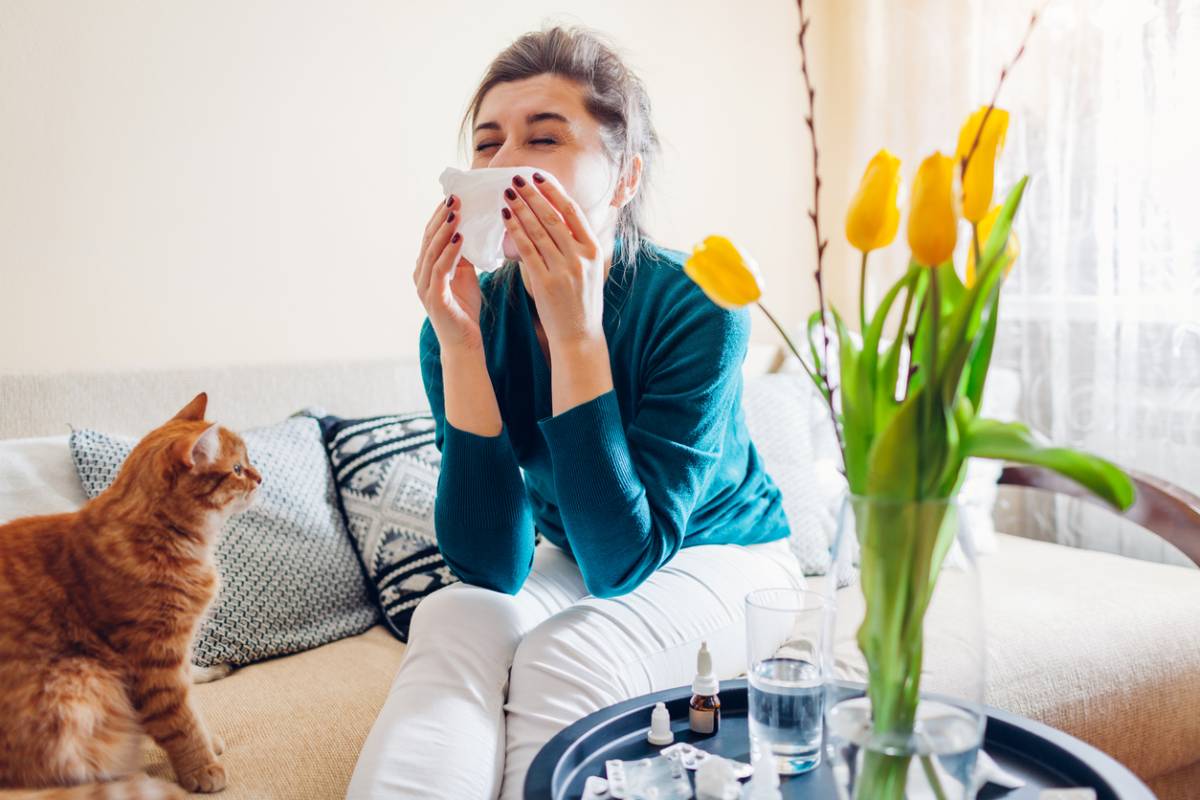People can be allergic to a wide range of triggers, which can interfere with their ability to function in day-to-day activities. However, not all people are susceptible to developing allergies. Why certain people develop allergies and others do not can be very complicated. Much of it has to do with complex intersections of personal, genealogical, and environmental health. Learning whether or not you are susceptible to developing allergies can help you better understand them and protect against them if necessary.
What Exactly are Allergies?
The body develops antibodies to protect us from invasive illnesses. Generally speaking, allergies arise from the body generating certain antibodies in excess, which can cause a variety of symptoms to develop. This type of excessive antibody production has the potential to be provoked by any number of stimuli, including food, pollen, or dander.
Some of what contributes to the development of allergies is a process known as immunological memory. Immunological memory is the ability of the immune system to respond more rapidly and effectively to pathogens that have been encountered previously. It is necessary for an individual’s health, but in the case of an allergic reaction, the response is magnified, and repeat exposures trigger overreactions from the immune system. If left unchecked, these immune responses can become life-threatening.
Why Do Only Some People Develop Allergies?
Allergies take many forms, so it is difficult to determine exactly where they come from. The same stimuli that provoke extreme allergic reactions in some people provoke no reaction in others. For this reason, it is crucial to observe the timing of your allergic reactions closely, as they can clue you in to what provokes them.
One of the most common contributing factors to the development of allergies is family history. Overall, there is approximately a 50% chance that an individual will develop allergies if one of their parents is allergic. These allergies can develop at any point in a person’s life, but they often develop early on. Allergies that develop in childhood often become lifelong concerns, though some fade with time.
Allergies in Adulthood
Though most allergies appear early in a person’s life, they can develop during adulthood. Adult-onset allergies often seem to arise out of the blue or at least very suddenly. In truth, they are likely caused by allergen exposure when your immune system function is reduced. Some of the most common allergens in adults are:
- Peanuts
- Fish
- Shellfish
- Shrimp
- Lobster
- Tree nuts (such as pecans, cashews, and more)
- Flower pollen
- Grass
Ultimately, if you are going to develop adult allergies, they cannot be avoided without cutting out all potential allergens from your life. Because allergens can come in so many forms, this is an unrealistic objective. As this is the case, it is best to try to maintain good health so allergies do not develop when your immune system is weakened, and see a specialist about treatment options if they do.
How to Treat Adult-Onset Allergies
There are numerous methods for treating allergies, many of which are dependent on the overall severity of one’s allergies. In general, it is considered best practice to avoid what you suspect might be the source of your allergies, at least until you have consulted an allergist.
Your allergist may prescribe tests, most often of the skin or blood, to find what is triggering your allergic reactions. Should the allergy test confirm the trigger of your allergies, your doctor will work with you to create a treatment plan. The primary methods utilized to treat allergies include:
- Avoidance measures
- Medications
- Immunotherapy
- Allergy shots
Can I Prevent Allergies?
Unfortunately, it is not entirely possible to prevent the development of adult-onset allergies because it is challenging to predict when or in response to which allergen an individual will develop allergies. Although one cannot prevent allergies from ever developing, it is possible to create an action plan if allergic reactions develop.
Some of the strategies for treating an individual’s allergies are based on what exactly they are allergic to. You can discuss the best way to approach your specific circumstance with your physician. During this time, they will give you a checklist you can follow to manage your condition.
Your Best Resource for Treating Allergies
Dr. Mayank Shukla is the best allergy doctor in New York and is available to help individuals suffering from allergies. If you would like to discuss your allergies with someone who knows the most practical way to deal with them, contact our office today.

